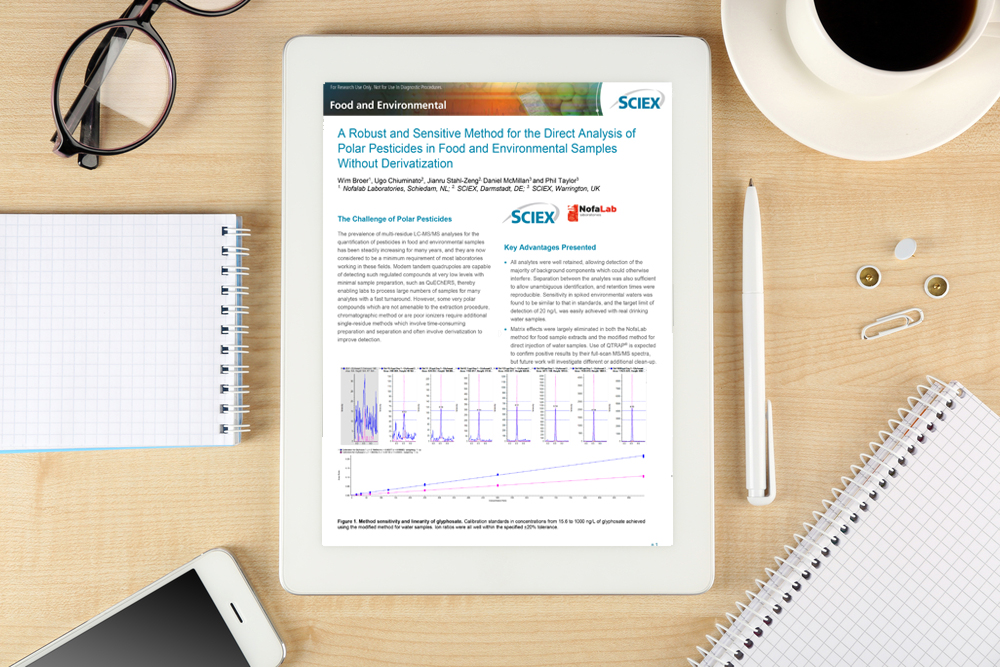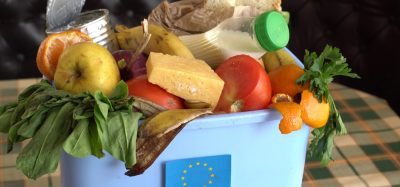A robust and sensitive method for the direct analysis of polar pesticides in food and environmental samples without derivatisation
Posted: 6 December 2018 | Sciex | No comments yet
This application note discusses how some polar compounds are not amenable to the extraction procedure. It discusses how chromatographic methods or poor ionisers require additional single-residue methods which involve time-consuming preparation and separation, and often involve derivatisation to improve detection.
The challenge of polar pesticides
The prevalence of multi-residue LC-MS/MS analyses for the quantification of pesticides in food and environmental samples has been steadily increasing for many years, and they are now considered to be a minimum requirement of most laboratories working in these fields. Modern tandem quadrupoles are capable of detecting such regulated compounds at very low levels with minimal sample preparation, such as QuEChERS, thereby enabling labs to process large numbers of samples for many analytes with a fast turnaround.
This application note is restricted - login or subscribe free to access


Why subscribe? Join our growing community of thousands of industry professionals and gain access to:
- bi-monthly issues in print and/or digital format
- case studies, whitepapers, webinars and industry-leading content
- breaking news and features
- our extensive online archive of thousands of articles and years of past issues
- ...And it's all free!
Click here to Subscribe today Login here
Related content from this organisation
- Protecting the food chain: Advanced HRMS strategies for contaminants in water and soil
- Tackling invisible threats: allergen and pathogen risks in food manufacturing
- Enhancing food safety analysis with diagnostic ion screening
- Omics in the rapidly developing field of alternative proteins: innovation and safety
- Guide to Testing: The latest on lab techniques and research
Related topics
Environment, Liquid chromatography–mass spectrometry (LC-MS), Pesticides










